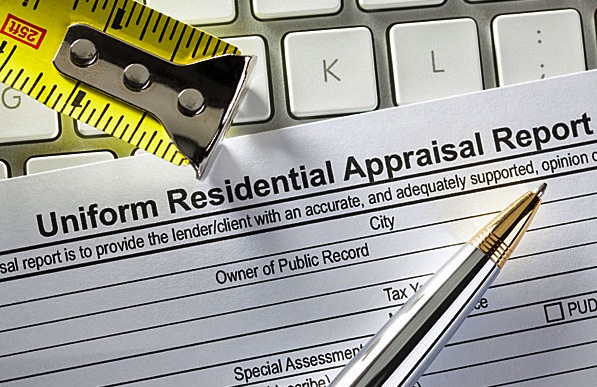Home buying in a seller’s market can be challenging. Housing is limited, so sellers can have the upper hand. It’s not uncommon these days for properties to get multiple offers with bids well over list price. What does this all mean for buyers? It might take the buyers making offers on several different properties before one of their offers is finally accepted. With high competition from other eager buyers in the market, what are the best ways to brave the home buying battle? While there’s no guaranteed way to win the home you’re after, here are some tips to help improve your chances:

GET PRE-QUALIFIED FOR A MORTGAGE
Getting pre-qualified lets you know how much home you can afford, and it also shows sellers that you’re a serious buyer who is much more likely to be able to close escrow. Better yet, rather than send a pre-qualification or pre-approval letter with your offer, send an actual approval letter from your lender showing that your loan application has already gone through underwriting and been approved.
A pre-approval or pre-qualification just means you can probably get a loan (keyword: “probably”), whereas an actual approval means you only need a home address to finalize the loan. Being fully approved before you make an offer speeds up the loan process significantly. This is especially attractive to sellers who want a fast closing.
Most lenders won’t offer approval without a property address though, so be sure to work with a mortgage broker like Justin Bennett of Bennett Mortgage Group. Then when you make an offer on a house, have your mortgage broker call the seller’s agent to tell them you have already been approved and why that benefits the seller.

DON’T WAIT TOO LONG
In a competitive real estate market, time is of the essence. As soon as you see a house come on the market that you like, pick up the phone and dial your Realtor to schedule a showing. If you wait a day or even a couple of hours, that house could go under contract while you’re thinking about it. If you spend too much time making an offer on a home you’re interested in, it gives another buyer the opportunity to make an offer. When you find the right property, don’t waste time.

CONNECT WITH THE SELLER
A personal touch can help make a difference, especially if your offer is one of many and you want yours to stand out from the rest. It may help your chances to try to personally connect with the seller by writing them a sincere letter. Start by writing them a thank you letter right after you’ve seen their property before you even make an offer.
Then when you do submit an offer, include a personalized cover letter explaining why you love their home, including your hopes and dreams about living there – holiday gatherings, making meals in the kitchen with family, or having barbecues in the yard with friends. Anything that personalizes you and your offer may help your chances of winning the bid.

MAKE A STRONG OFFER
Work closely with your Realtor to put together a strong offer for the home you’re after. Believe it or not, it’s not always about the price. Sure, the offer price can play an important role, but there are other factors for the seller to consider as well.
Make a Larger Earnest Money Deposit
Typically the earnest money is 1%-3% of the offer price, but if you can pay more upfront, it might help you win the bid. The earnest money is a deposit, which acts as insurance for the seller. If your offer is accepted and you back out for a reason other than what’s allowed in your contract, the seller could keep your earnest money deposit. But if you don’t break the contract and the deal goes through, you get the earnest money deposit back by using it towards your down payment. Similarly, if you can make a larger down payment, it will also help assure the seller that you’re committed.
Work With the Seller on the Closing Date
Have your Realtor ask the listing agent what the seller wants. It’s a simple question that can go a long way. Sellers often have their own preferences regarding when to close. If you can be flexible with the closing date and contingencies, you could be in a better position as a buyer. Include a cover letter with your offer pointing out the changes you made in the contract to accommodate the seller’s needs and/or preferences.
Perhaps they’re closing on a new house and want to be out of their current house as quickly as possible. Or it could be the opposite where they haven’t found a replacement home yet and want a longer closing to give them more time to find another property. You can even offer to rent the property back to the seller after closing (“leaseback”) for a certain period of time to make the transition smoother for them.
Include an Escalation Clause for the Acceptance Time
This is a way to motivate the seller to accept your offer sooner, which will also help prevent them from receiving other offers. Perhaps you’re submitting your offer on Friday at 6:00pm. However, the seller wants to review all offers on Sunday at 6:00pm, so that’s what they’re requesting the Acceptance Deadline to be. You can agree to that Acceptance Deadline but stipulate that if they accept your offer sooner (say by Saturday at 6:00pm instead), you’ll pay an extra dollar amount over your offer price (it could be any amount, but let’s say an extra $5,000 for argument’s sake). For example, you could offer $310,000, but if they accept your offer sooner than the Acceptance Deadline (by a different, earlier specific date and time), you’ll agree to pay $315,000 instead.
Include an Escalation Clause to Outbid Competitors
This strategy states that you’ll pay an extra dollar amount over the highest offer up to a specified amount. I’m not a big fan of this option because you have no way of knowing how much the highest offer will end up being, and you’re basically telling the seller upfront how much you’re really willing to pay. However, it can be very effective. You’ll want to specify how much more you’re willing to pay over the highest offer with the purchase price not exceeding a certain amount. You’ll also want to make this contingent on the seller providing a copy of the highest competing offer.

Offer an Appraisal Gap
Sometimes offering significantly more than the asking price of a property can actually backfire because the seller and listing agent could be concerned that the property might not appraise for that much. Therefore, you could offer an appraisal gap to cover the difference if the property appraises for less than the offer price to give them peace of mind. Lenders will only lend on the appraised value of the property. So let’s say you’re planning on making a 5% down payment, and the lender will lend the remaining amount (95%). If you offer more than the list price, and the appraised value comes in at less than what you offer, the lender will only lend 95% of the appraised value (NOT 95% of your offer price). This can be a very strong negotiating tool to make your offer more desirable, but if you decide to go this route, you’ll have to be prepared to pay extra for the down payment to make up the difference. Here’s an example of how the Appraisal Gap would work:
-
-
- Offer Price = $215,000
- Appraised Value = $200,000
- Loan Amount (95%) = $190,000 (95% of the appraised value of $200,000)
- Down Payment (5% + Appraisal Gap) = $25,000 (instead of paying the original 5% down payment of $10,750 for your Offer Price of $215,000, you would have to pay the total difference between the Offer Price of $215,000 and the Loan Amount of $190,000 to cover the Appraisal Gap for a difference of $14,250 extra)
-
Offer a Home Warranty with Seller’s Coverage
Purchasing a home warranty is always recommended for your protection when it comes to your new property. In addition to protection for yourself, your offer can include a buyer’s home warranty that also has seller’s warranty coverage. This will cover you once you take ownership of the property while providing coverage for the seller from contract date through closing while the house is under contract. By offering the seller home warranty coverage, you will be giving the seller peace of mind during the course of the transaction. This strategy is especially useful for older homes and adds value for sellers that may be concerned with the condition of the property, appliances, systems, etc. It can also send a positive message by telling the seller you will be cooperative for a smooth inspection and closing process.

Waive the Inspection, or Include an Inspection Contingency
Buyers have the right to have an inspection done of the property they are purchasing, and they are urged to do so. Keep in mind that the main purpose of an inspection is to focus on health, safety and structural concerns, not to address cosmetic issues. Real estate contracts allow buyers to ask the sellers to correct any unsatisfactory physical conditions. Buyers may also back out of the deal altogether during the inspection period while still getting their earnest money (deposit) back. This can be a sticking point with sellers because when it comes time for inspections, they don’t want to have to fix a long list of items and pay for the repairs out of pocket.
Though NOT recommended, buyers may choose to waive a home inspection when submitting their offer to alleviate concern a seller may have as to what an inspection might reveal or suggest. This is a very strong strategy for your offer, but by waiving the inspection altogether, you will be relinquishing your right to object to inspection items. This means that you will not be able to ask the seller to address any inspection issues, and you will not be able to back out of the purchase based on the inspection. In this case, if you did back out due to the inspection, you would lose your earnest money. This appeals to sellers because it saves them from having to do any repairs (which also saves them money), and it shows you are more serious about buying the property.
However, if you don’t want to completely waive the inspection, there’s another way to strengthen your offer when it comes to the inspection. You can still reserve your inspection rights by including a contingency with a stipulation that you will only request the seller to repair/replace cumulative or individual inspection items that are more than a certain dollar amount. With this option, you can still back out of the contract if the seller doesn’t do the repairs. This helps your offer by letting the seller know that you’re not going to nitpick or nickel and dime them over every little inspection item.
Using the above strategies will hopefully give you an edge over the competition and win you the house of your dreams! Best of luck with buying a home!
* Please keep in mind that this blog post was written for Colorado (specifically the Denver Metro area) in June 2016. This information may vary in time as well as in other states and/or real estate markets.
© Briana Nickas and www.briananickas.com, 2016. Unauthorized use and/or duplication of this material without express and written permission from this site’s author and/or owner is strictly prohibited. Excerpts and links may be used, provided that full and clear credit is given to Briana Nickas and www.briananickas.com with appropriate and specific direction to the original content.





1 thought on “Tips for Home Buyers in Seller’s Market”